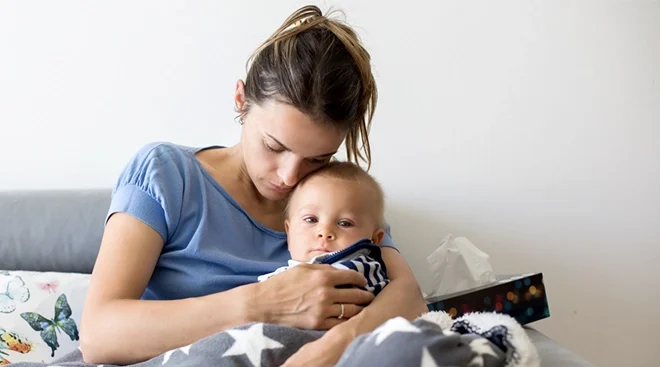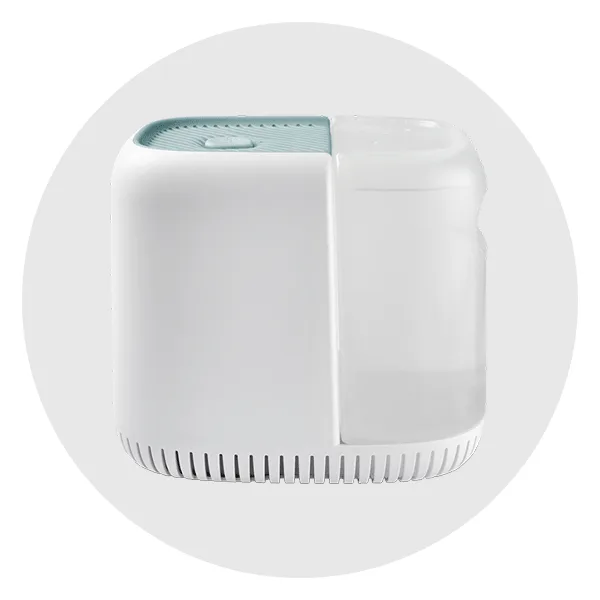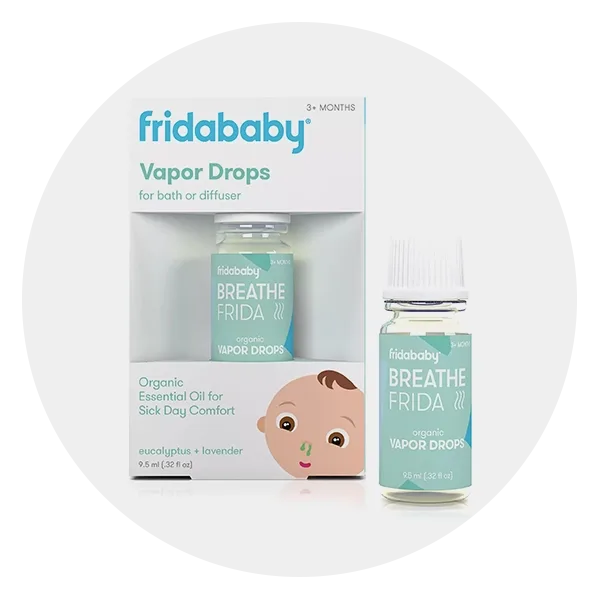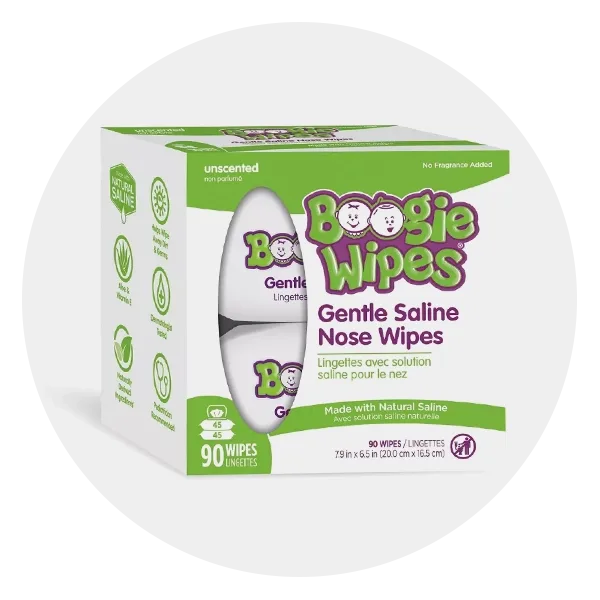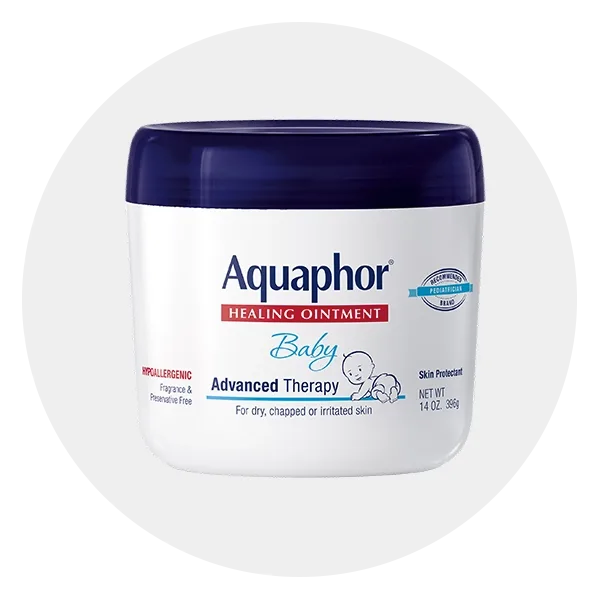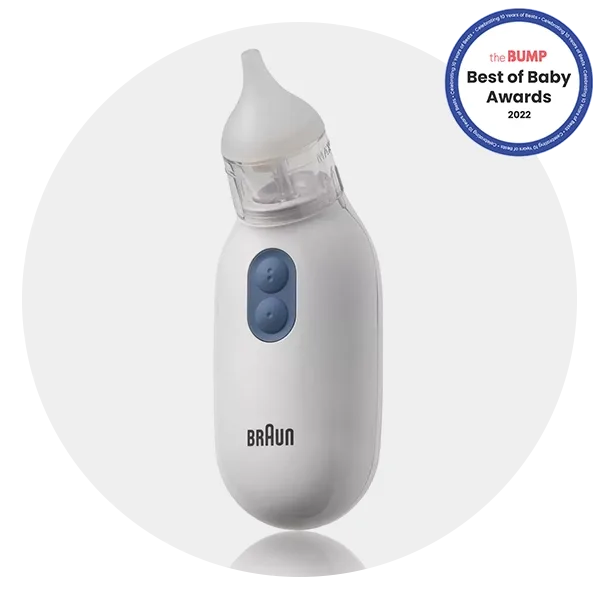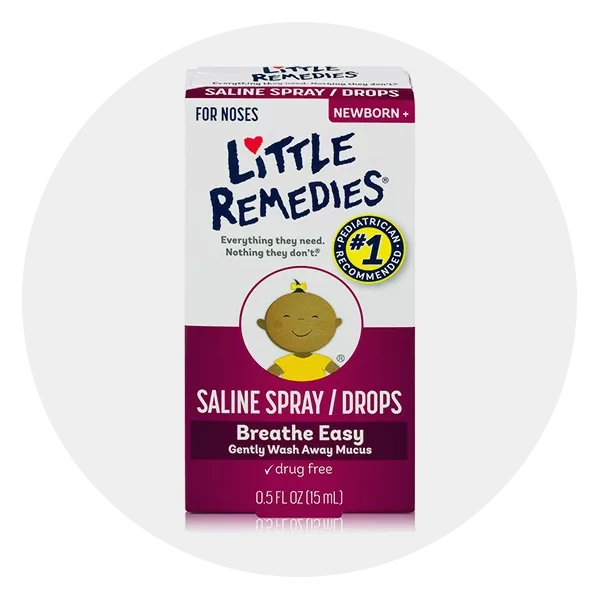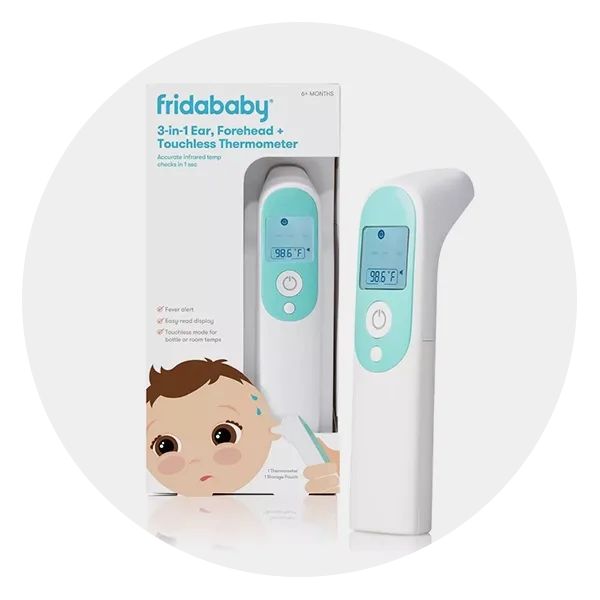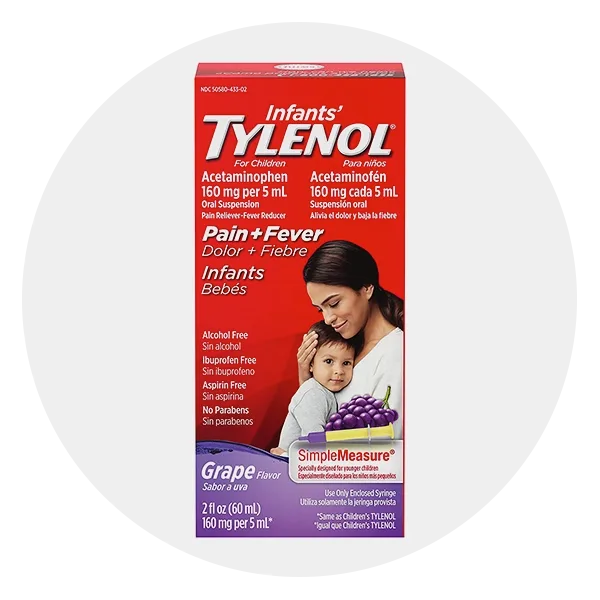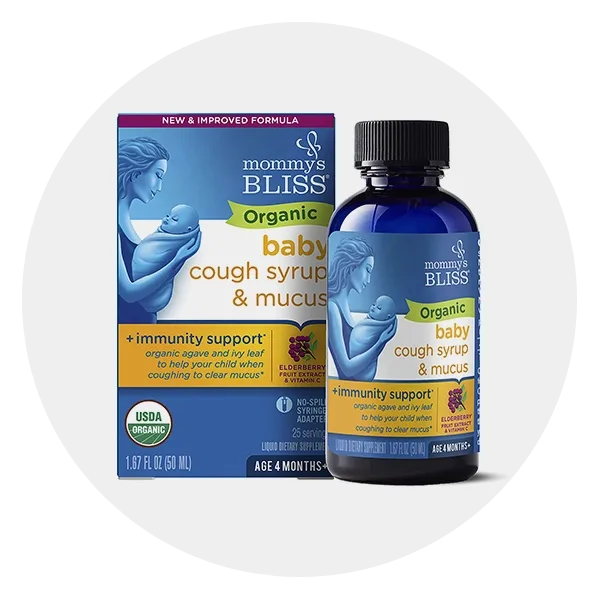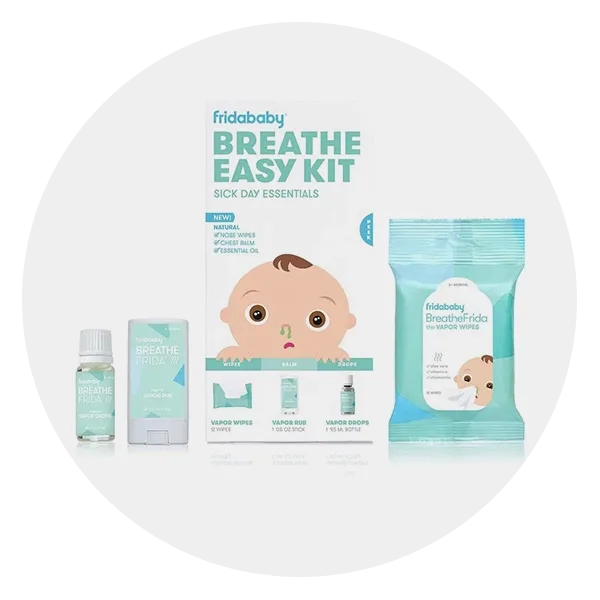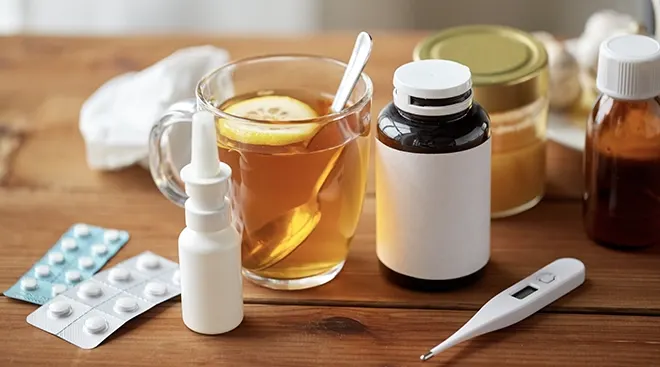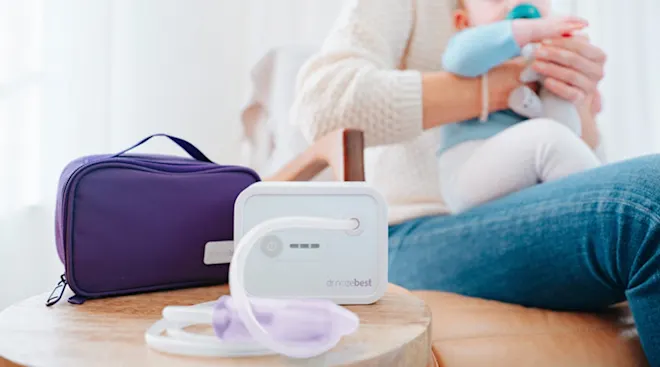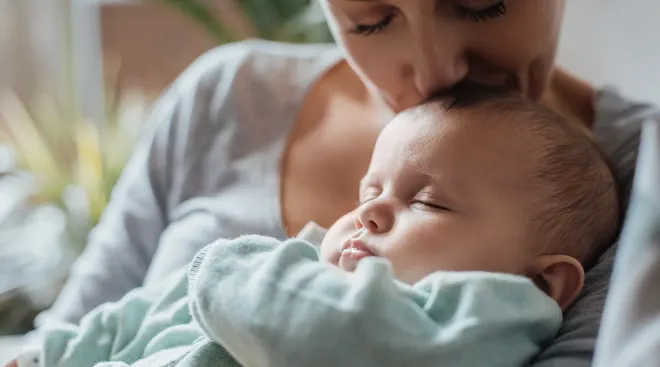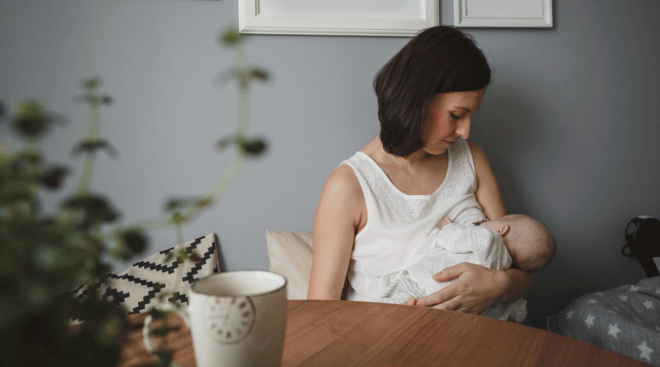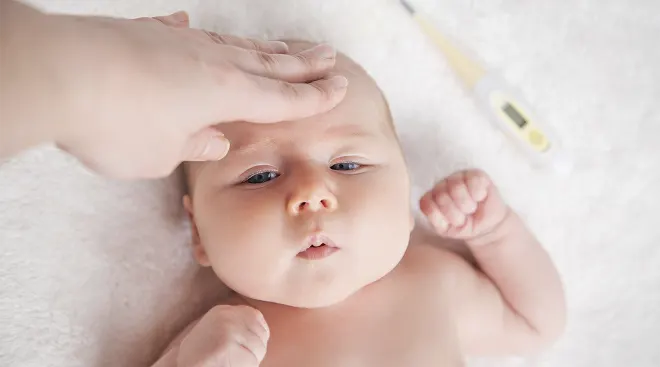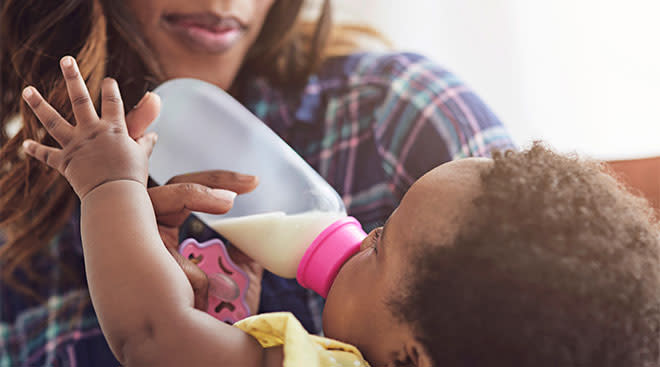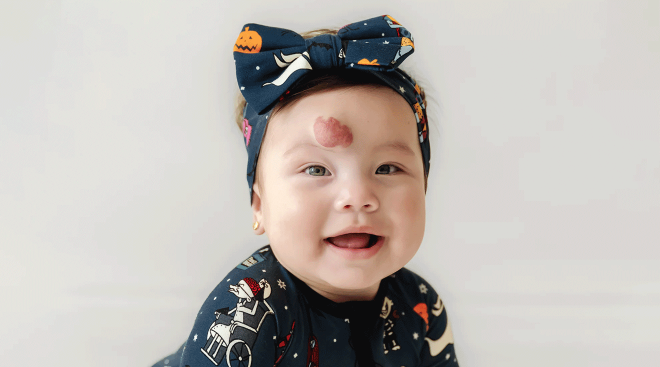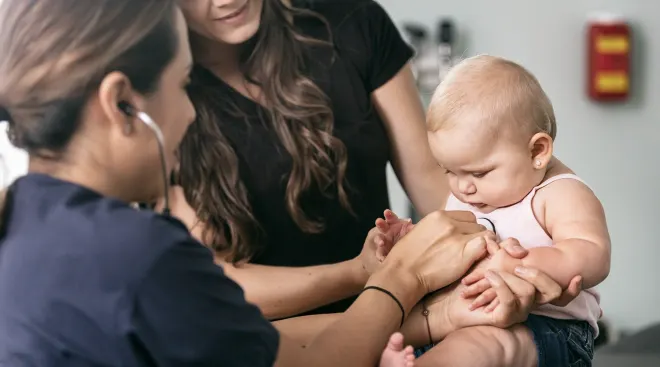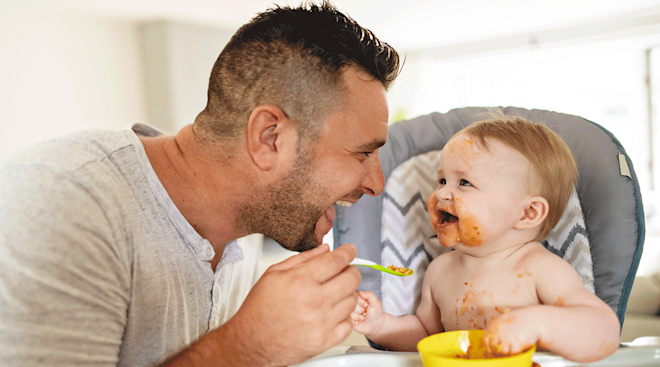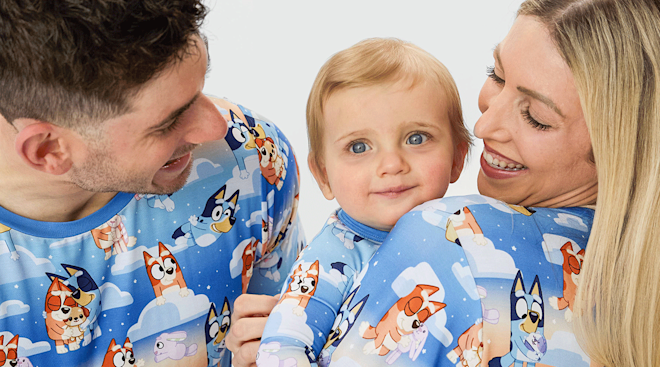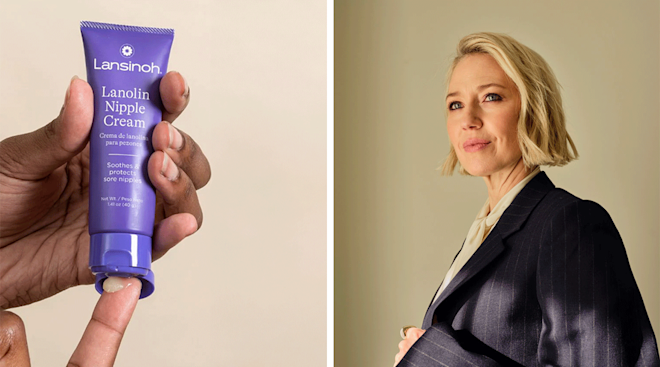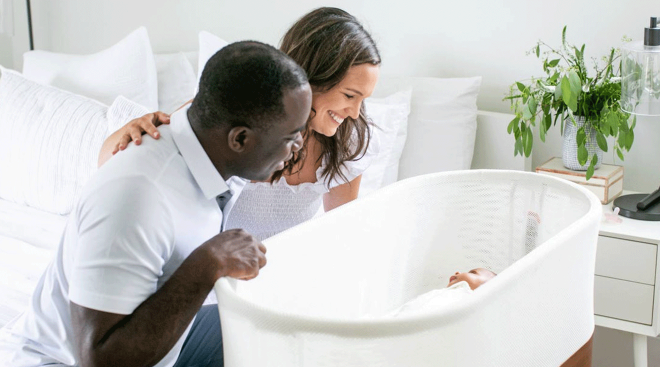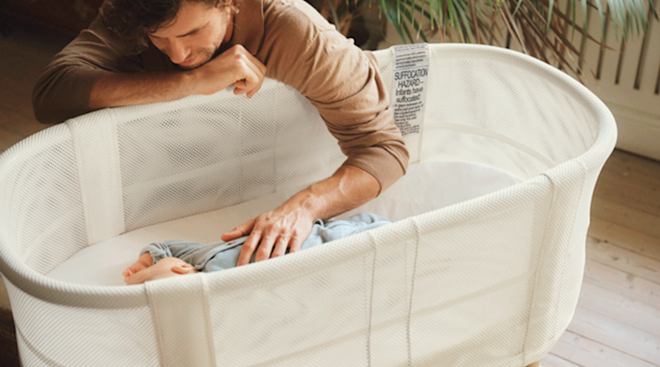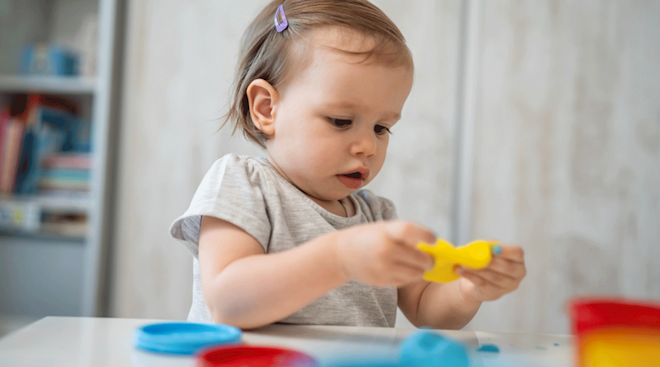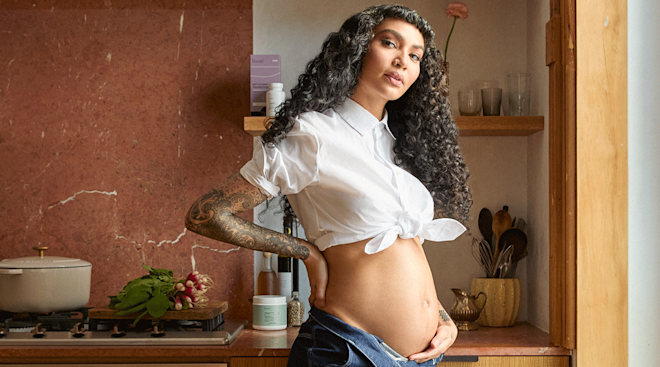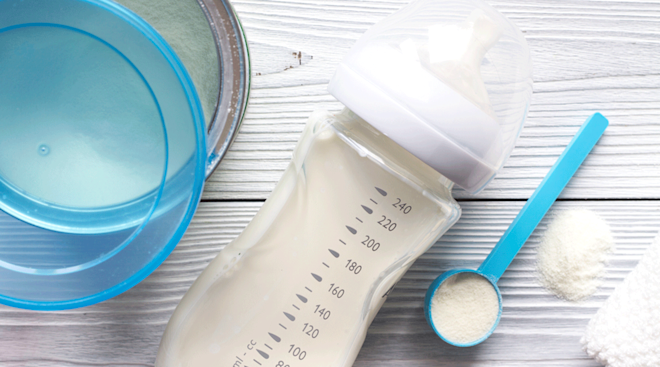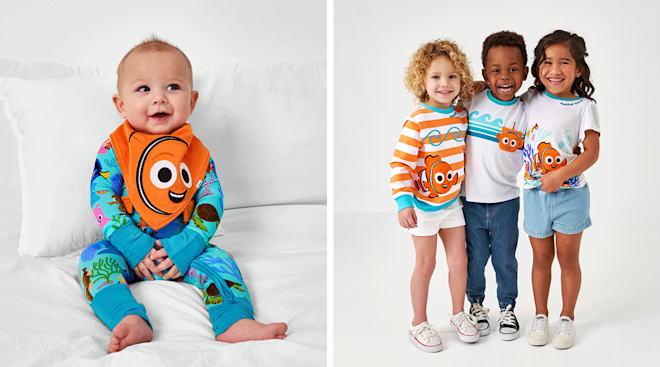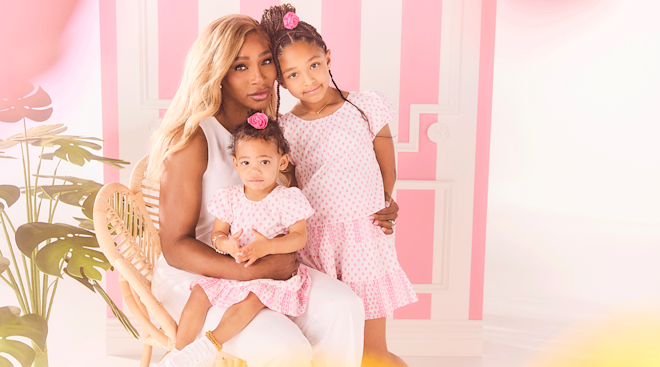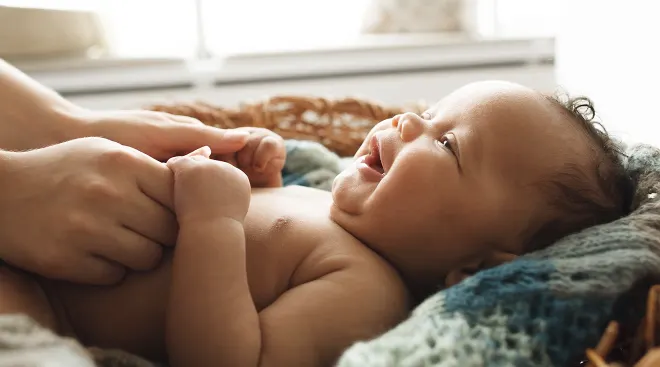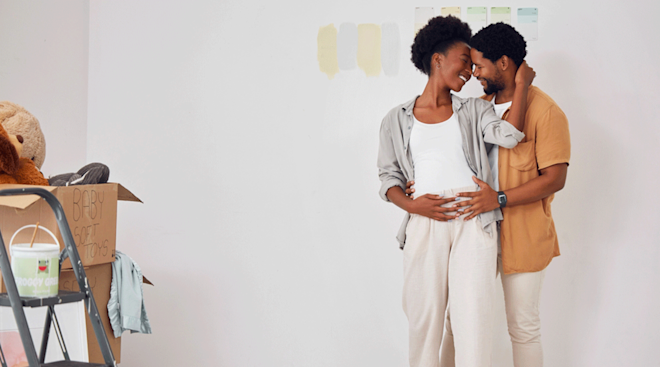Sniffles Be Gone: How to Treat a Baby Cold
There are plenty of baby firsts to look forward to, from their first smile to their first word. One that isn’t on the list? Baby’s first cold. The onset of sniffles can bring about a barrage of questions for new parents: How long does a baby cold last? What can babies take for a cold? Are there infant cold remedies I can use? Don’t worry—most of the time, a baby cold is totally manageable. Here, experts explain the symptoms to watch for, what to do when baby has a cold and when to enlist the help of a doctor.
Wondering what age baby’s first cold might pop up? Unfortunately, there’s no exact answer. The average age for baby’s first cold will vary from child to child, and much of this will depend on their personal circumstances and interactions with others, says Denise Scott, MD, an Oklahoma-based pediatrician and expert with JustAnswer. “An infant in a daycare setting or with older siblings in school is likely to get one sooner than one who stays home or is an only child,” she explains.
One thing parents can know for certain? Baby will catch one (or several) cases of the sniffles. “It’s very common for babies to get colds,” says Dean Blumberg, MD, FAAP, chief of pediatric infectious diseases at UC Davis Children’s Hospital in Sacramento, California. “Kids less than one year of age will average four to six colds per year, unless they’re in daycare, in which case, they’ll have more contact with other children and can get even more colds.”
We’ve all had colds, and can probably rattle off the standard symptoms that tend to plague adults. But an infant cold can affect babies differently, Blumberg says. Here are some common baby cold symptoms to look for:
- Nasal congestion
- Sneezing
- Coughing
- Runny nose
- Fever
- Irritability
- Decreased appetite
- Slightly fast breathing (this is due to congestion, Scott says, but if baby’s breathing rapidly continuously, call your doctor)
- Apnea (episodes of not breathing, which occur instead of coughing; call your doctor if you notice this)
Of these baby cold symptoms, the first to appear will likely be a mild runny nose or nasal congestion, Scott says, followed by a cough, a decrease in appetite and a low-grade fever (under 101.5 degrees Fahrenheit). Along with these, parents might also notice some less common symptoms, such as eye discharge and nosebleeds. While uncommon, neither of these are cause for concern. Eye discharge can develop without an eye infection. “Nasal congestion can cause a small amount of eye discharge when the nasal drainage backs up through the tear duct into the eye,” explains Scott. As for nose bleeds, this usually happens due to nasal membranes drying out or becoming irritated from frequent suctioning, Scott adds.
One baby cold symptom that parents will want to pay attention to is baby’s breathing. It’s likely baby might experience slightly faster breathing due to congestion—but if it continues to be rapid, call your pediatrician. If you’re uncertain if baby needs to see a doctor, Scott suggests counting their breathing rate for an entire minute. “Watch the rise and fall of baby’s chest, and listen for in-and-out breathing,” she says. “An infant under one should breathe less than 60 times in a full minute (count one breath as in and out); a one to 2-year-old should breathe under 50 times a minute.”
Baby cold vs other illnesses
Wondering if baby has a cold or another illness, like the flu? There are actually a few ways to spot the difference between a cold and flu in babies. “The flu typically comes with higher fevers, over 102 degrees Fahrenheit,” says Gina Posner, MD, a pediatrician at MemorialCare Orange Coast Medical Center in Fountain Valley, California. “Baby can also have other symptoms besides congestion and cough, like vomiting or diarrhea.” Additionally, a baby cold usually has a slower onset than the flu, which tends to start quite suddenly. At the end of the day though, the only surefire way to know if it’s a baby cold is to do a nasal-swab lab test at your pediatrician’s office.
Wondering how to spot the difference between a baby cold and COVID-19? According to Scott, COVID symptoms will likely extend beyond the respiratory system. (You can learn more on how to spot the differences between a baby cold and covid here.)
The answer varies according to the type of virus that’s causing the baby cold. (For example, the rhinovirus causes a shorter range of infant symptoms, Blumberg says, whereas the adenovirus leads to prolonged symptoms.) An infant cold usually lasts between three and seven days, he says, but can linger for up to 10 days or longer.
So what can you do when baby has a cold? The best infant cold remedy is some good old-fashioned TLC. “Antibiotics don’t help because baby colds aren’t caused by bacteria, and we haven’t developed effective antivirals except for [those for] influenza,” Blumberg says. The most important thing to do when confronted with a baby cold is to prevent your child from getting dehydrated. “Make sure they’re getting enough fluids and that their urine output is adequate,” Blumberg says. Babies typically wet their diaper every one to three hours, though it’s normal to go half as often when they’re sick, according to the American Academy of Pediatrics (AAP). Beyond keeping baby hydrated, there are a few tricks to easing baby’s discomfort from symptoms. Keep these natural baby cold remedies in mind:
-
Create a steam room. If your child is coughing a lot, bring them to the bathroom, close the door and turn the shower to piping hot until steam fills the room. The humidity will help break up the mucus, Blumberg says.
-
Turn on a cool mist humidifier. To help baby sleep better (and aid with congestion and coughing), use a cool mist humidifier in the nursery; it works to infuse more humidity in baby’s room, which naturally has lower humidity level at night. Avoid hot water vaporizers because they can potentially result in burns.
-
Suction baby’s nose. When congestion is making it hard for baby to breathe properly, remove the mucus with a nasal aspirator. If you’re using a traditional suction bulb, simply squeeze the bulb to create suction, insert the tip into baby’s nostril and slowly release.
-
Try saline nose drops. Sometimes baby’s mucus is too thick to effectively suction out. Break up the mucus first by putting a few drops of saline in baby’s nose and then suction it out, Scott suggests.
-
Keep baby flat on their back. Wondering if there are optimal sleeping positions for babies with a cold? Unlike adults, it’s not safe to have baby sleep on an incline. According to the AAP, babies under a year old should always sleep flat on their back on a firm, non-inclined surface.
Infant cold medicine
Pediatricians generally don’t recommend using any over-the-counter baby cold medicine. “They have an unacceptably high rate of side effects and children can be harmed by those,” Blumberg says. “There’s no evidence they actually make children more comfortable.”
If a fever is causing your child discomfort, Blumberg says you can help lower baby’s temperature with acetaminophen (Tylenol) if baby is 2 months or older, or ibuprofen (Motrin or Advil) if baby is 6 months or older. “Many children can have a fever and aren’t bothered by it. In that case, I wouldn’t bother trying to medicate it,” he says.
You can generally handle a baby cold with the home remedies above—but sometimes medical attention is in order. Wondering when to worry about an infant cold, or what to do if baby’s cold is getting worse? Here are the symptoms to look out for:
-
Trouble breathing. “If the child is having difficulty breathing or breathing very rapidly—so actively that they’re sucking in their ribs—that’s a warning sign,” Blumberg says. Wheezing is also a symptom to be on the lookout for.
-
Violent coughing fits. This can be a sign that your child may have something other than a baby cold—like whooping cough, for example, which can be serious.
-
High fever. If a baby under 6 weeks old has a temperature of 100.4 degrees Fahrenheit or higher, call your pediatrician, Posner says.
-
Signs of dehydration. If baby isn’t wetting their diaper every six hours or so, let your pediatrician know.
Keep these baby cold products on hand (especially during sniffle season!), so you’ll be able to soothe your little love at home effectively and efficiently. Here, our essentials for combating fevers, mucus, congestion and everything in between.
A humidifier
A cool mist humidifier is key when it comes to combating baby cold symptoms and relieving uncomfortable congestion. Our favorite is this standout device from Canopy which can hydrate rooms that are up to 500 square feet. It’s equipped with sensors designed to maintain optimal humidity levels in baby’s room, day and night (emphasis on night—to help with sleep!). You can choose from several cute colors, so that the device blends in seamlessly with your little one’s adorable nursery decor. Plus, you can add essential oils or vapor drops to create an even more soothing environment for baby. Best of all? The humidifier’s parts are dishwasher-safe, and it’s made with mold-inhibiting technology to keep it—and your air—clean with ease.
Vapor drops
Create a calming, medicated mist in baby’s nursery with vapor drops. You can use them in diffusers or some humidifiers, but can also add a few drops to your infant’s bath to deliver comfort from cold symptoms. These vapor drops from Fridababy can be counted on to tackle snot and congestion in babies 3 months or older.
Boogie wipes
Keep baby’s snot at bay with boogie wipes. Created by moms for moms, these moist saline wipes are the perfect solution for wiping runny and crusty noses alike. They’re unscented, hypoallergenic and made with aloe, chamomile and vitamin E to soothe baby’s skin as they gently dissolve mucus. No more irritated, red noses! An added bonus: These wipes come in a flip-top container so they’ll stay fresher for longer.
A healing ointment
When baby has a cold, their sensitive skin can easily become irritated—particularly if you’re using dry tissues to wipe their noses. That’s where Aquaphor Baby Healing Ointment comes in. The formula is designed specifically for little ones and can be used to soften sore, chapped skin from head to toe. And if baby isn’t sick, it can also be used to relieve drool rash, diaper rash and chafing.
A nasal aspirator
Alleviate baby’s congestion with the help of this Best of Baby award-winning nasal aspirator from Braun. It can be counted on to clear stuffy noses gently, quickly and efficiently. This device comes with two nozzle sizes: One for surface-level suction and one to go deeper into the nasal passage. As a safety precaution, it will automatically shut off when you release either suction button, plus it comes with a carrying pouch and batteries.
A saline solution
Make relieving baby’s congestion with a nasal aspirator even more straightforward thanks to this saline solution. You can use this product as drops or a mist, depending on your preference, and it’s perfect for getting crusty boogies out of little noses. Safe for newborns, the non-medicated saline solution is alcohol- and preservative-free.
A chest rub
A chest rub is another essential when it comes to gently easing baby’s stuffed nose. This option is made from soothing, all-natural ingredients such as lavender, chamomile and eucalyptus to calm your little one while also alleviating cold symptoms. Parents say this chest rub especially works wonders when used after a warm bath and applied to baby before bedtime.
A thermometer
A thermometer is a cold-season essential, especially if you have an infant at home. Our favorite? This 3-in-1 design from Fridababy. In just a second, it will accurately read baby’s temperature, and alert you if it’s high by changing the screen color. The device stores up to 40 previous readings, so you can easily keep track of baby’s fever. Due to its touchless design, the versatile baby thermometer can even take the temperature of a room or a bottle.
Fever-reducing medicine
Infants’ Tylenol is helpful to have on hand in your medicine cabinet, so you can address a fever whenever one might flare up. The pediatrician-recommended pain reliever can reduce high temperatures and other discomforts in as little as 15 minutes, and it comes with an easy-to-use syringe, so you can ensure baby is receiving the correct dosage. Dosing information is available for little ones 2 years or older; if baby is younger, consult their pediatrician.
A cough syrup
Another product that’s useful to keep in your medicine cabinet arsenal? This organic baby cough syrup from Mommy’s Bliss that comes with a no-spill syringe. The formula contains agave, ivy leaf, vitamin C and other herbal ingredients to help clear mucus in baby’s throat and nose. Free from common allergens, the cough syrup was designed with little ones in mind. Consult your pediatrician before using if baby is under 12 months old.
A sick day essentials kit
Last on our list of the best baby cold products: Fridababy’s sick day essentials kit. Whether you are stocking up ahead of time, in case of sniffles, or are picking one up because you currently have a sick child, this set will have you covered. It consists of three must-haves when it comes to fighting cold symptoms: Nose and chest wipes, chest rub and vapor drops. Boogers, snot and mucus will be no match for this soothing trio!
Of course, the best way to keep your little one safe is to prevent an infant cold from cropping up in the first place. Follow these tips to help keep those baby colds at bay:
-
Keep sick people away from baby. Remember, colds are contagious. “If someone says they have a slightly scratchy throat or are at the tail end of a cold, they can come visit another time,” Posner says.
-
Make sure people wash their hands before touching baby. Viruses can linger on people’s hands and be transmitted through touch. “Especially during the winter, when we’re often at holiday celebrations and baby is being passed around, they’re at risk of getting exposed to infections,” Blumberg says. “Make sure people wash their hands before holding the baby to prevent infection.”
-
Try to breastfeed. Breastfeeding isn’t for everyone, and that’s totally okay. If you do decide to breastfeed though, know that it helps build immunity, which means your little one is less likely to catch a baby cold.
Please note: The Bump and the materials and information it contains are not intended to, and do not constitute, medical or other health advice or diagnosis and should not be used as such. You should always consult with a qualified physician or health professional about your specific circumstances.
Plus, more from The Bump:
Dean Blumberg, MD, FAAP, is the chief of pediatric infectious diseases at UC Davis Children’s Hospital in Sacramento, California. He received his medical degree from Chicago Medical School and completed his residency at Massachusetts General Hospital in Boston.
Gina Posner, MD, is a pediatrician at MemorialCare Orange Coast Medical Center in Fountain Valley, California. She earned her medical degree from New York Medical College and for over 10 years has volunteered with various organizations in the US and the Dominican Republic mentoring and educating children and parents on different health topics.
Denise Scott, MD, is a pediatrician with JustAnswer and a pediatric endocrinologist based in Oklahoma with over 30 years of experience. Certified in culinary medicine, Scott also runs the blog Feed Future Health and is the author of Feed Your Child's Future Health: Prevent Disease before it Starts. She received her medical degree from the University of Texas Medical Branch and completed her residency at the University of Oklahoma Health Sciences Center, with a fellowship at the National Institutes of Health.
Healthy Children (American Academy of Pediatrics), Rhinovirus Infections, November 2018
Healthy Children (American Academy of Pediatrics), Adenovirus Infections in Infants and Children, June 2022
Healthy Children (American Academy of Pediatrics), Baby's First Days: Bowel Movements & Urination, August 2021
American Academy of Pediatrics, American Academy of Pediatrics Updates Safe Sleep Recommendations: Back is Best, June 2022
Learn how we ensure the accuracy of our content through our editorial and medical review process.
Navigate forward to interact with the calendar and select a date. Press the question mark key to get the keyboard shortcuts for changing dates.
































